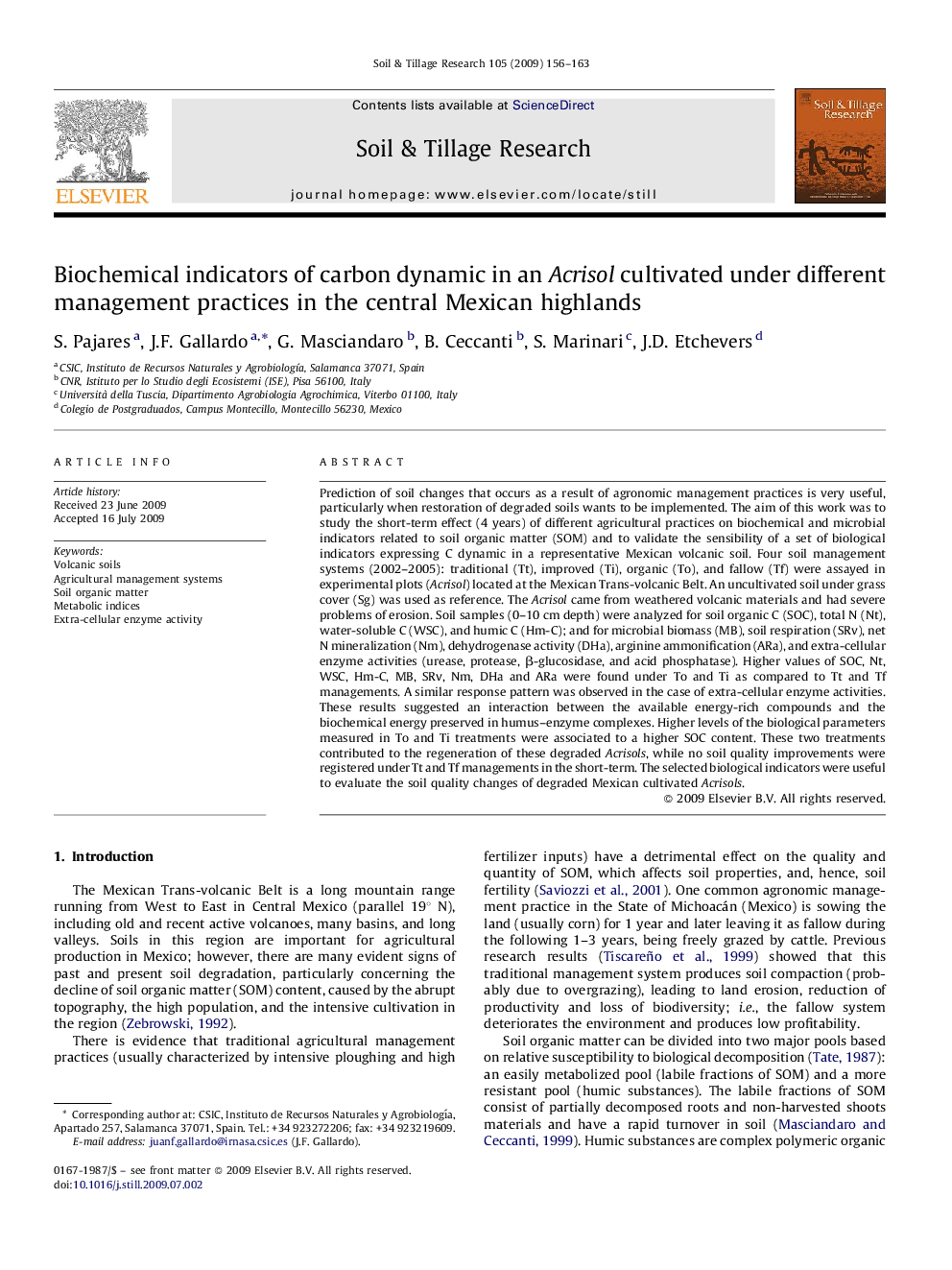| Article ID | Journal | Published Year | Pages | File Type |
|---|---|---|---|---|
| 306432 | Soil and Tillage Research | 2009 | 8 Pages |
Prediction of soil changes that occurs as a result of agronomic management practices is very useful, particularly when restoration of degraded soils wants to be implemented. The aim of this work was to study the short-term effect (4 years) of different agricultural practices on biochemical and microbial indicators related to soil organic matter (SOM) and to validate the sensibility of a set of biological indicators expressing C dynamic in a representative Mexican volcanic soil. Four soil management systems (2002–2005): traditional (Tt), improved (Ti), organic (To), and fallow (Tf) were assayed in experimental plots (Acrisol) located at the Mexican Trans-volcanic Belt. An uncultivated soil under grass cover (Sg) was used as reference. The Acrisol came from weathered volcanic materials and had severe problems of erosion. Soil samples (0–10 cm depth) were analyzed for soil organic C (SOC), total N (Nt), water-soluble C (WSC), and humic C (Hm-C); and for microbial biomass (MB), soil respiration (SRv), net N mineralization (Nm), dehydrogenase activity (DHa), arginine ammonification (ARa), and extra-cellular enzyme activities (urease, protease, β-glucosidase, and acid phosphatase). Higher values of SOC, Nt, WSC, Hm-C, MB, SRv, Nm, DHa and ARa were found under To and Ti as compared to Tt and Tf managements. A similar response pattern was observed in the case of extra-cellular enzyme activities. These results suggested an interaction between the available energy-rich compounds and the biochemical energy preserved in humus–enzyme complexes. Higher levels of the biological parameters measured in To and Ti treatments were associated to a higher SOC content. These two treatments contributed to the regeneration of these degraded Acrisols, while no soil quality improvements were registered under Tt and Tf managements in the short-term. The selected biological indicators were useful to evaluate the soil quality changes of degraded Mexican cultivated Acrisols.
